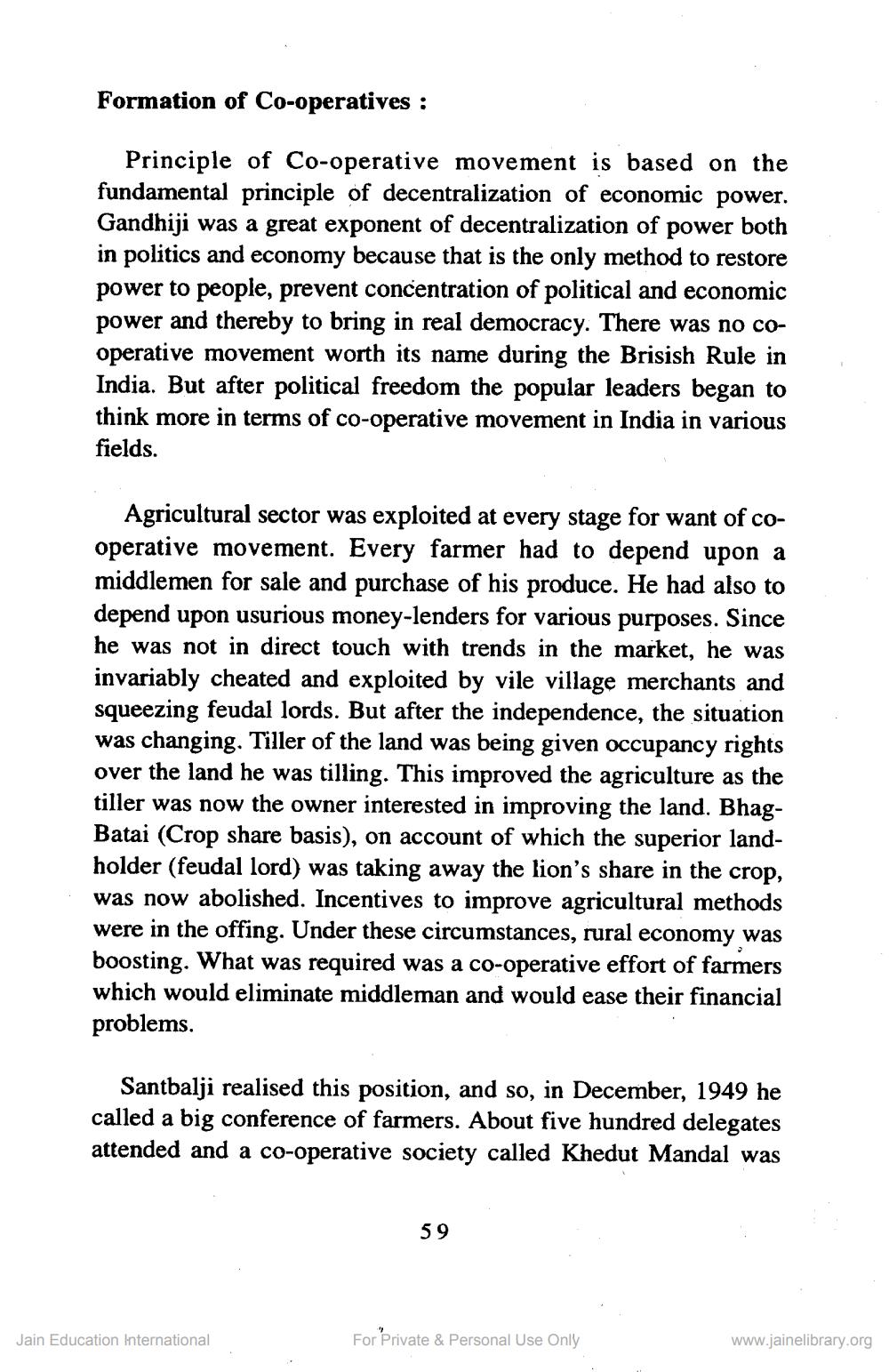________________
Formation of Co-operatives :
Principle of Co-operative movement is based on the fundamental principle of decentralization of economic power. Gandhiji was a great exponent of decentralization of power both in politics and economy because that is the only method to restore power to people, prevent concentration of political and economic power and thereby to bring in real democracy. There was no cooperative movement worth its name during the Brisish Rule in India. But after political freedom the popular leaders began to think more in terms of co-operative movement in India in various fields.
Agricultural sector was exploited at every stage for want of cooperative movement. Every farmer had to depend upon a middlemen for sale and purchase of his produce. He had also to depend upon usurious money-lenders for various purposes. Since he was not in direct touch with trends in the market, he was invariably cheated and exploited by vile village merchants and squeezing feudal lords. But after the independence, the situation was changing. Tiller of the land was being given occupancy rights over the land he was tilling. This improved the agriculture as the tiller was now the owner interested in improving the land. BhagBatai (Crop share basis), on account of which the superior landholder (feudal lord) was taking away the lion's share in the crop, was now abolished. Incentives to improve agricultural methods were in the offing. Under these circumstances, rural economy was boosting. What was required was a co-operative effort of farmers which would eliminate middleman and would ease their financial problems.
Santbalji realised this position, and so, in December, 1949 he called a big conference of farmers. About five hundred delegates attended and a co-operative society called Khedut Mandal was
Jain Education International
59
For Private & Personal Use Only
www.jainelibrary.org




